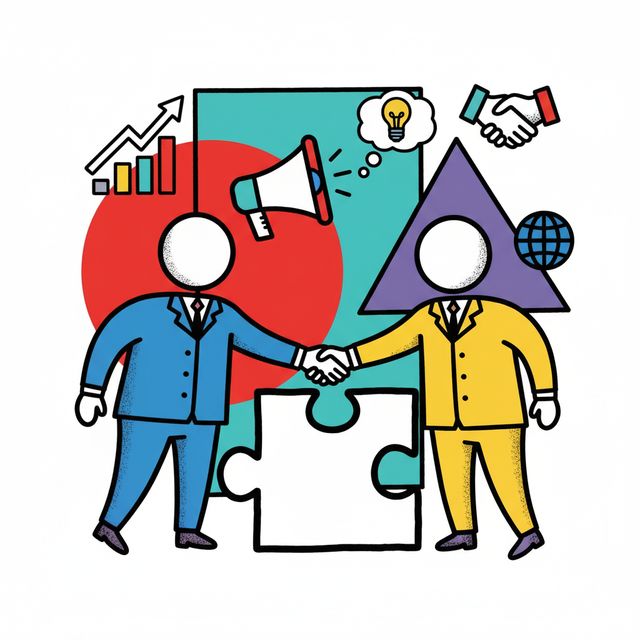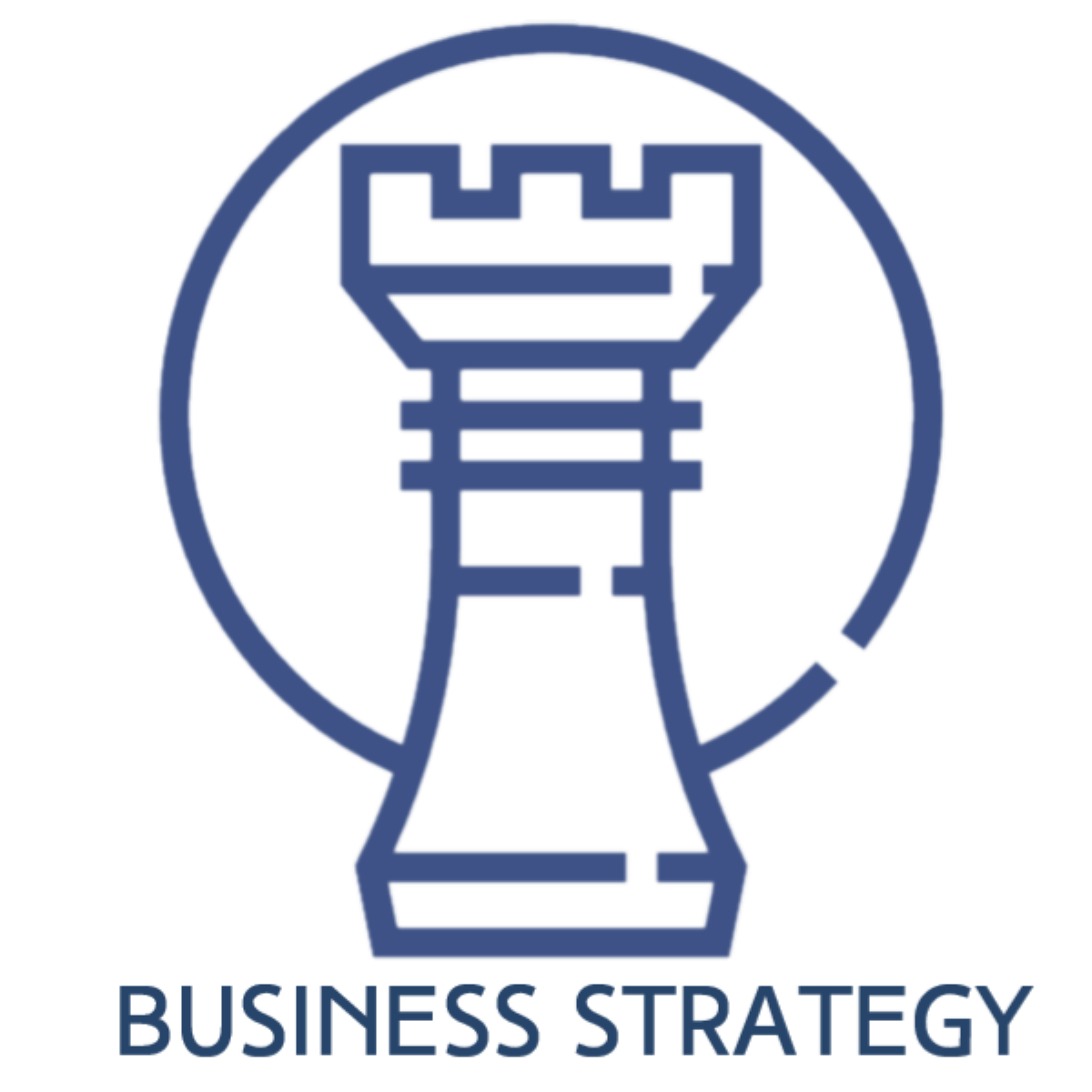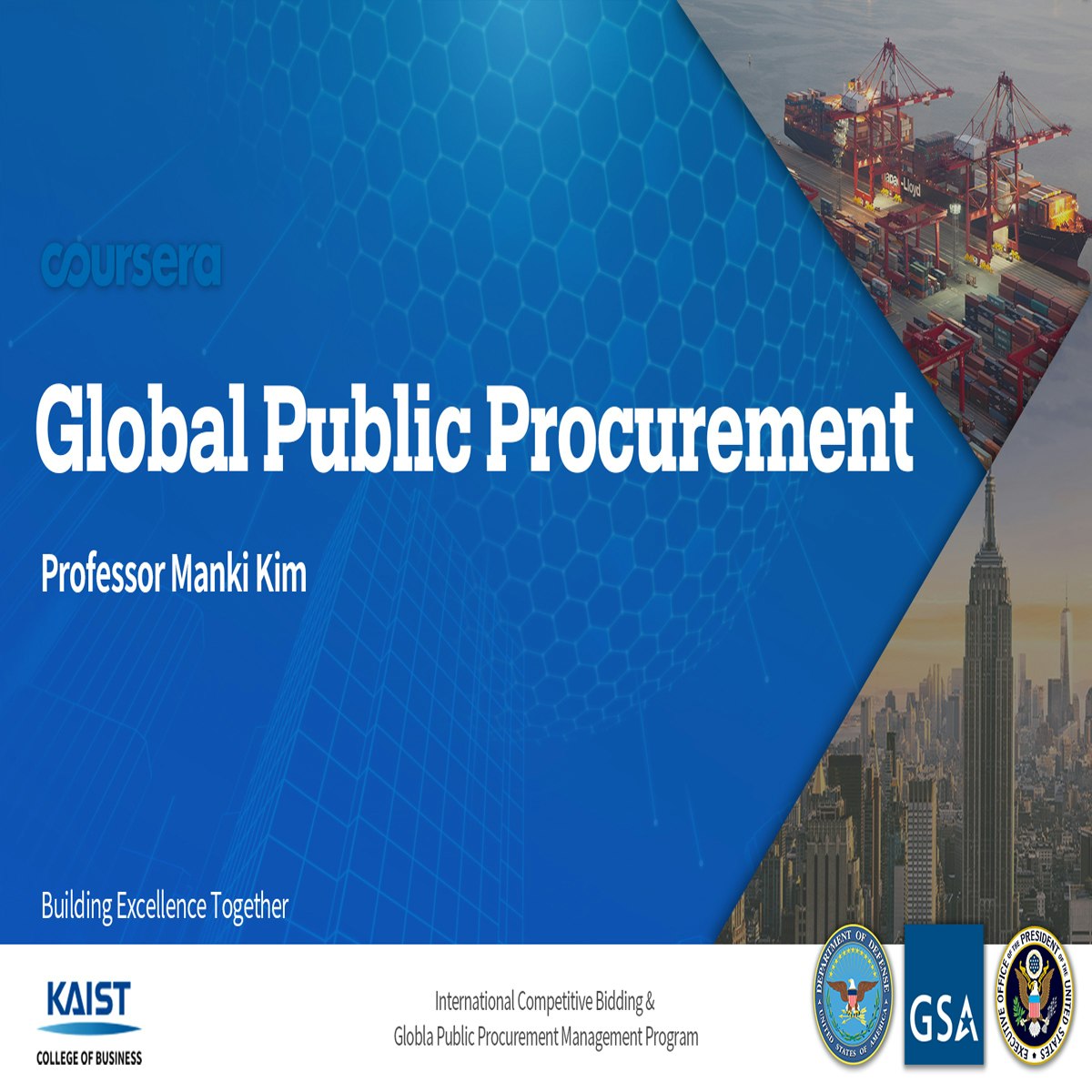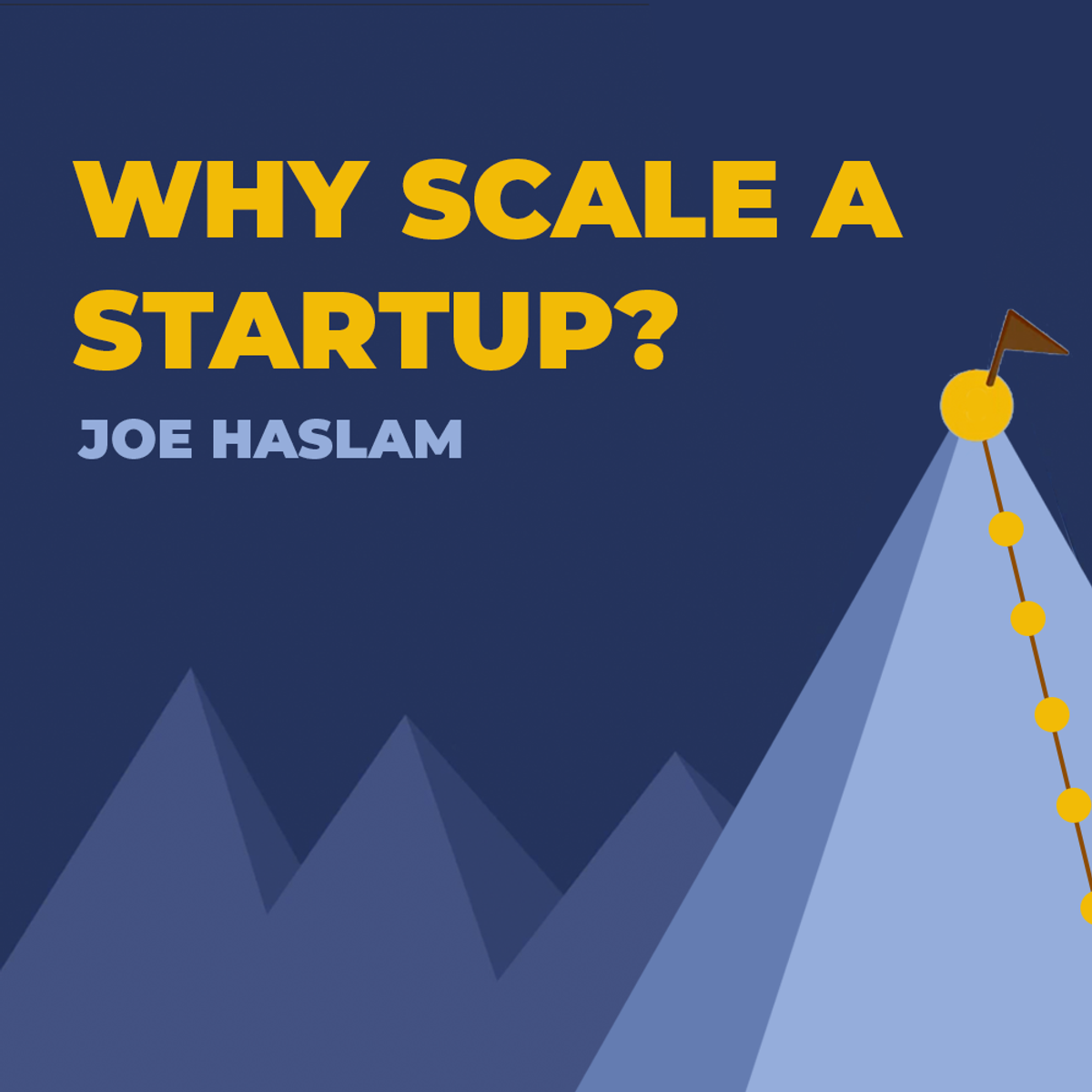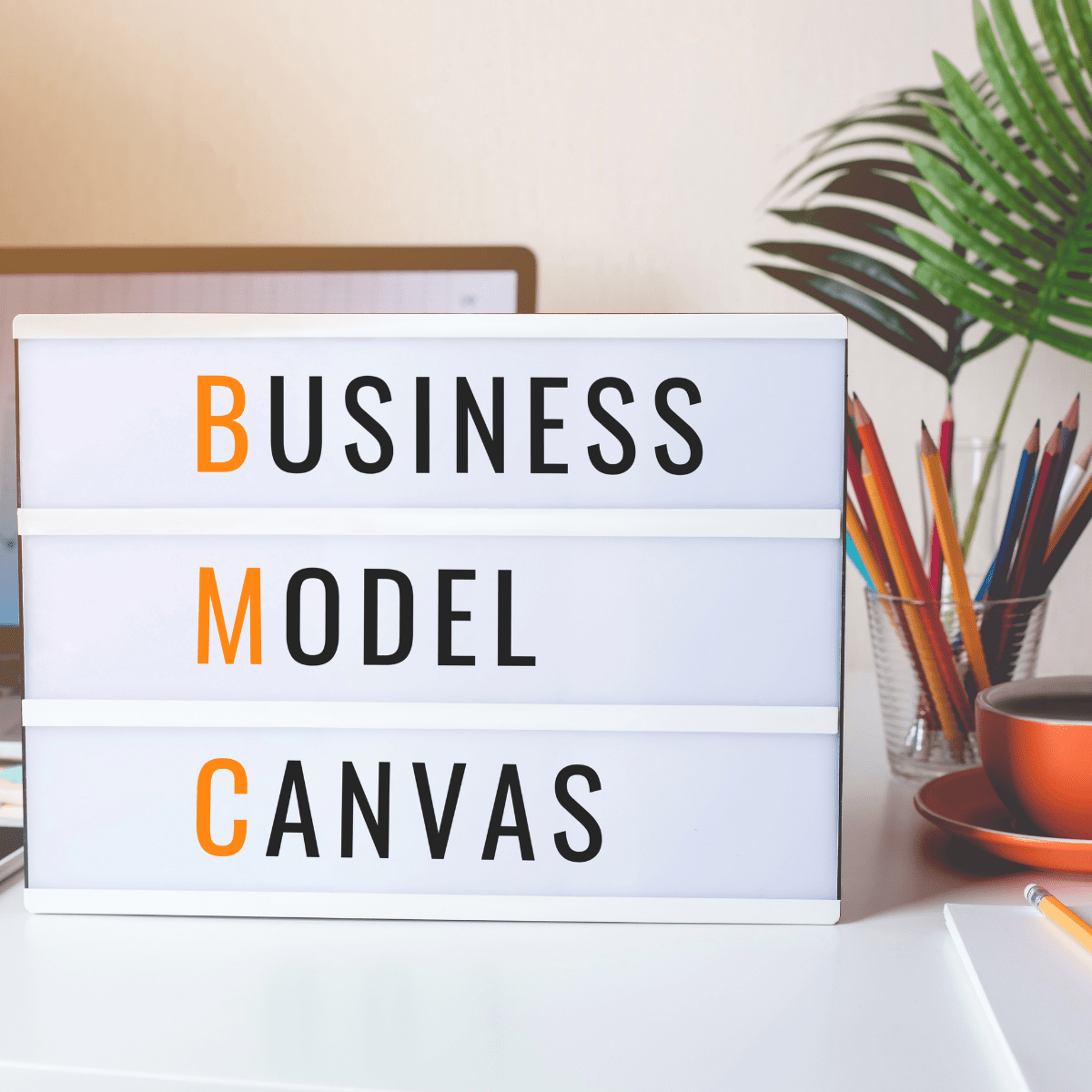Business Development Manager
Business Development Manager: Charting the Course for Growth
A Business Development Manager (BDM) is a key figure within an organization, focused primarily on driving growth. At its core, this role involves identifying new business opportunities—be it new markets, new partnerships, new products, or new ways to reach existing markets—and then converting these opportunities into tangible revenue streams. They are the strategic thinkers who look beyond day-to-day sales to build long-term value for the company.
This career often attracts individuals who thrive on strategy, networking, and negotiation. It's a dynamic field where success hinges on understanding market trends, building strong relationships, and aligning business development efforts with the company's overall goals. For those curious about corporate strategy and eager to make a significant impact on a company's trajectory, the BDM role offers a compelling path.
Introduction to Business Development Management
What is a Business Development Manager?
A Business Development Manager is essentially a strategist focused on growth. Their main objective is to identify and develop new business opportunities to increase revenue, expand market presence, and improve profitability. Unlike traditional sales roles that often focus on closing immediate deals, BDMs concentrate on creating long-term value through strategic relationships and initiatives.
Think of a BDM as a blend of a market analyst, strategist, salesperson, and relationship builder. They need a deep understanding of the company's products or services, its market position, and the competitive landscape. Their work involves scouting for potential partners, exploring new customer segments, or even identifying ways to enhance existing offerings to meet evolving market needs.
This role requires a forward-thinking perspective. BDMs constantly analyze market trends, assess potential risks and rewards of new ventures, and develop plans to pursue promising avenues. They are instrumental in shaping the future direction of the business by finding sustainable ways to grow.
The Evolution of the BDM Role
The concept of business development has evolved significantly. Initially, it might have been an informal part of sales or marketing functions. However, as markets became more competitive and globalized, the need for a dedicated strategic growth function became apparent. Companies recognized that sustainable growth required more than just incremental sales improvements; it needed strategic planning and proactive opportunity creation.
Modern business development emerged as a distinct discipline focused on creating long-term value. The rise of technology, particularly the internet and data analytics, further transformed the role. BDMs now leverage sophisticated tools for market research, lead generation, and relationship management, allowing for more data-driven and targeted strategies.
Today, the BDM role is highly strategic, often involving complex deal-making, cross-functional collaboration, and a deep understanding of industry dynamics. It reflects the increasing complexity of the business world and the continuous need for adaptation and innovation to stay competitive.
Key Industries Employing Business Development Managers
Business Development Managers are found across a vast range of industries, as nearly every sector requires strategic growth initiatives. Technology is a major employer, with BDMs driving partnerships, platform adoption, and market expansion for software, hardware, and IT services companies. The fast pace of innovation in tech demands constant exploration of new opportunities.
Healthcare and pharmaceuticals also heavily rely on BDMs to navigate complex regulatory environments, forge research collaborations, license new drugs or technologies, and expand into new therapeutic areas or geographic markets. Financial services employ BDMs to develop new client segments, launch innovative financial products, and establish strategic alliances.
Other significant sectors include manufacturing, energy, consulting, media, and telecommunications. Even non-profits and government agencies sometimes utilize business development principles to secure funding, build partnerships, and expand their reach. The specific focus may vary, but the core goal of strategic growth remains consistent.
Global Demand Trends
The demand for skilled Business Development Managers remains strong globally, driven by increasing competition, globalization, and the constant need for innovation. Companies are continually seeking ways to expand their market share, enter new territories, and diversify their revenue streams, making the BDM role crucial for strategic planning and execution.
Emerging markets often present significant opportunities, requiring BDMs with cultural intelligence and the ability to navigate different business landscapes. Technology advancements, particularly in AI and data analytics, are also shaping demand, favoring BDMs who can leverage these tools for market insights and efficient outreach.
While economic downturns can impact hiring (as discussed in Harvard Business Review), the fundamental need for strategic growth often means that skilled BDMs remain valuable assets. Companies may prioritize those who can demonstrate a clear ability to generate revenue and secure critical partnerships, even in challenging economic climates. The role continues to evolve, demanding adaptability and a strategic mindset.
Key Responsibilities of a Business Development Manager
Market Research and Opportunity Identification
A fundamental responsibility of a BDM is to scan the horizon for new opportunities. This involves thorough market research to understand industry trends, competitor activities, potential customer needs, and untapped market segments. It's about finding fertile ground where the company can plant seeds for future growth.
Think of opportunity identification like being a scout. You're constantly looking for signs – maybe a competitor is neglecting a customer group, a new technology creates a possibility for a new product, or a potential partner could open doors to a new market. This requires analytical skills to interpret data and strategic thinking to see potential where others might not.
BDMs use various tools and techniques, from analyzing market reports and attending industry conferences to conducting customer interviews and competitive analysis. The goal is to build a pipeline of potential opportunities that align with the company's strategic objectives and resource capabilities.
These courses provide foundational knowledge in identifying and assessing market opportunities, crucial for any BDM.
Client Acquisition and Partnership Development
Once opportunities are identified, the BDM works to turn them into reality. This often involves acquiring new strategic clients or establishing partnerships. Unlike typical sales focused on volume, BDM client acquisition targets high-value, long-term relationships that can significantly impact the business.
Partnership development is another key area. This could mean collaborating with other companies to co-develop products, access new distribution channels, or enhance service offerings. BDMs identify potential partners, build relationships, negotiate terms, and manage these strategic alliances.
Effective communication, negotiation, and relationship-building skills are paramount here. BDMs must articulate the value proposition clearly, understand the needs and motivations of potential clients or partners, and build trust to foster successful collaborations.
Revenue Growth Strategies
Ultimately, the BDM's efforts must contribute to the company's bottom line. They are responsible for developing and implementing strategies that drive revenue growth. This goes beyond individual sales targets and involves creating sustainable pathways for increased income.
Strategies might include entering new geographic markets, launching new product lines tailored to identified needs, developing new pricing models, or creating strategic partnerships that unlock new revenue streams. The BDM must analyze the potential return on investment for each strategy and prioritize initiatives effectively.
This requires a strong understanding of business models, financial principles, and strategic planning. BDMs need to build compelling business cases for their proposed initiatives, securing buy-in from senior leadership and other departments.
Understanding different business models and growth approaches is key. These resources delve into strategic frameworks.
Cross-functional Collaboration
Business development does not happen in a vacuum. BDMs must work closely with various internal teams, including sales, marketing, product development, legal, and finance. Effective collaboration is essential to ensure that business development initiatives are aligned with overall company strategy and capabilities.
For example, a BDM might work with marketing to understand target audience messaging, collaborate with product teams on feasibility and development timelines for new offerings, coordinate with sales on transitioning new clients or partners, and consult with legal on contract terms.
This requires strong interpersonal skills, the ability to influence without direct authority, and a clear understanding of how different departments function. BDMs often act as internal champions for their initiatives, bridging gaps between teams to ensure smooth execution.
Performance Metrics and KPIs
Like any business function, business development needs to measure its effectiveness. BDMs are typically evaluated based on specific Key Performance Indicators (KPIs) that reflect their contribution to strategic goals. These metrics help track progress and demonstrate the value of BD initiatives.
Common KPIs might include the number of new partnerships established, revenue generated from new initiatives, market share growth in target segments, the size and quality of the opportunity pipeline, or the conversion rate of leads to partners or strategic clients. The specific KPIs depend heavily on the company's goals and the BDM's focus area.
Understanding and tracking these metrics is crucial for demonstrating success, justifying resource allocation, and refining strategies over time. It allows BDMs and their leadership to make data-informed decisions about where to focus efforts for maximum impact.
Essential Skills for Business Development Managers
Negotiation and Persuasion
Negotiation is at the heart of business development. Whether finalizing partnership agreements, securing deals with strategic clients, or even gaining internal buy-in for new initiatives, BDMs must be skilled negotiators. This involves understanding interests, finding common ground, and creating mutually beneficial outcomes.
Persuasion goes hand-in-hand with negotiation. BDMs need to effectively articulate the value of their proposals and influence stakeholders – both external and internal. This requires strong communication skills, confidence, and the ability to build compelling arguments supported by data and strategic reasoning.
Developing these skills often involves practice and learning frameworks for principled negotiation. Understanding different negotiation styles and tactics is also crucial for adapting to various situations and counterparts.
Mastering negotiation and persuasion is crucial. These courses offer valuable frameworks and techniques.
Data-Driven Decision-Making
Modern business development relies heavily on data. BDMs use data to identify market trends, evaluate potential opportunities, track performance, and make informed strategic choices. Gut feeling still plays a role, but it must be backed by solid analysis.
This involves proficiency in gathering, interpreting, and utilizing data from various sources – market research reports, CRM systems, financial statements, web analytics, and more. Skills in data analysis tools, like Excel or even more advanced analytics platforms, are increasingly valuable.
Being data-driven means not just looking at numbers, but understanding the story they tell and using those insights to build stronger business cases, refine strategies, and predict future outcomes more accurately. This analytical rigor separates successful BDMs from those relying purely on intuition.
This book emphasizes the importance of storytelling with data, a key skill for BDMs presenting their findings.
CRM Software Proficiency
Customer Relationship Management (CRM) systems are essential tools for BDMs. These platforms help manage contacts, track interactions with potential clients and partners, monitor the sales and partnership pipeline, and analyze relationship data. Proficiency in using CRM software is often a requirement.
Popular CRM platforms include Salesforce, HubSpot CRM, Microsoft Dynamics, and others. Understanding how to effectively leverage these tools for lead management, communication tracking, reporting, and forecasting is crucial for organization and efficiency.
Beyond basic usage, skilled BDMs know how to customize CRM workflows and reporting to gain deeper insights into their pipeline and relationship health, enabling more strategic management of their activities.
Learning CRM fundamentals is key. While specific tool courses exist, understanding the principles is vital.
These books offer deeper insights into managing customer relationships, often facilitated by CRM systems.
Cultural Intelligence for Global Roles
In an increasingly interconnected world, many BDM roles involve working across borders. Cultural intelligence (CQ) – the ability to effectively navigate and adapt to diverse cultural contexts – is becoming a vital skill. This involves understanding different communication styles, business etiquettes, negotiation approaches, and decision-making processes.
High CQ enables BDMs to build trust and rapport with international partners and clients, avoid misunderstandings, and tailor their strategies to resonate with local market conditions. It requires awareness, knowledge, and adaptability.
Developing cultural intelligence can involve learning about specific cultures, seeking diverse experiences, and cultivating an open and curious mindset. It's essential for anyone aspiring to a global business development career.
These courses can help develop skills needed for international business interactions.
Adaptability in Fast-Paced Environments
The business landscape is constantly changing. New technologies emerge, competitors shift strategies, market conditions fluctuate, and customer preferences evolve. BDMs must be highly adaptable, able to pivot quickly in response to new information or changing circumstances.
This means being comfortable with ambiguity and uncertainty. It requires resilience to bounce back from setbacks – not every identified opportunity will pan out. Adaptable BDMs are lifelong learners, constantly updating their knowledge and skills to stay relevant.
They embrace change rather than resisting it, viewing shifts in the market as potential new opportunities. This flexibility is crucial for navigating the dynamic and often unpredictable world of business development.
This course specifically addresses managing change, a critical skill for adaptable BDMs.
Business Development Manager Career Pathways
Starting Points: Entry-Level and Feeder Roles
Few individuals start directly as a Business Development Manager immediately after graduation. Often, the BDM role requires prior experience, typically in sales, marketing, or a related field. Common entry points or "feeder" roles provide the foundational skills and industry knowledge needed.
Roles like Sales Development Representative (SDR) or Business Development Representative (BDR) are frequent starting points. These positions focus on prospecting, lead qualification, and initiating contact with potential clients, offering direct experience in the early stages of the sales/BD pipeline. Experience in account management or direct sales roles also provides valuable customer-facing and revenue-generation skills.
Alternatively, experience in market analysis, product management, or even management consulting can provide the strategic thinking and analytical skills necessary for a BDM role. For those transitioning, highlighting transferable skills like relationship building, strategic planning, and project management is key. Taking online courses in sales or business strategy on platforms like OpenCourser can also help bridge skill gaps.
These courses cover foundational sales skills often required before moving into a BDM role.
Typical Promotion Timeline to BDM
The timeline to become a BDM varies greatly depending on the industry, company size, individual performance, and prior experience. Generally, it might take anywhere from 3 to 7 years of experience in a relevant feeder role before transitioning into a full BDM position.
For instance, someone starting as an SDR might spend 1-2 years in that role, then move to an Account Executive or junior BDM position for another 2-3 years before becoming a BDM. Those coming from market analysis or product management might follow a different path, leveraging their strategic skills.
Accelerating this timeline often involves demonstrating strong performance in generating leads or revenue, showing strategic thinking beyond immediate tasks, proactively seeking mentorship, and continuously developing relevant skills through experience and potentially, further education or certifications.
Senior Roles and Advancement
The BDM role itself is often a mid-level position, offering significant opportunities for advancement. Experienced and successful BDMs can progress to more senior strategic roles within the organization. Common next steps include Senior Business Development Manager, Director of Business Development, or Vice President (VP) of Business Development.
These senior roles typically involve managing a team of BDMs, overseeing larger strategic initiatives, handling higher-value partnerships or deals, and having greater input into the company's overall strategy. They require strong leadership skills in addition to advanced business development expertise.
In some organizations, top-performing BD leaders might even move into C-suite positions like Chief Strategy Officer or Chief Revenue Officer, depending on their breadth of experience and impact on the company's growth.
Lateral Moves and Alternative Paths
The skills developed as a BDM are highly transferable, opening doors to various lateral moves and alternative career paths. The strategic thinking, market analysis, negotiation, and relationship-building expertise gained are valuable in many other functions.
Common lateral moves include transitioning into Product Management, where market understanding and strategic planning are crucial. BDMs might also move into senior Marketing Manager roles, leveraging their knowledge of customer acquisition and market positioning.
Another potential path is management consulting, where BDMs can apply their strategic problem-solving skills across different industries and clients. Some BDMs also leverage their experience and network to start their own businesses or become independent consultants specializing in business development strategy.
Formal Education Requirements
Relevant Undergraduate Degrees
While a specific degree is not always mandatory, a bachelor's degree is typically expected for Business Development Manager roles. Degrees in business-related fields are most common and provide a strong foundation. Fields like Business Administration, Marketing, Finance, and Economics equip students with relevant knowledge.
A Business Administration degree offers a broad overview of corporate functions, while a Marketing degree focuses on customer acquisition, branding, and market analysis. Finance or Economics degrees provide strong analytical skills valuable for assessing opportunities and building business cases.
Degrees in other fields can also be relevant, especially when combined with pertinent experience. For example, an engineering degree might be advantageous for BDMs in highly technical industries, while a communications degree could strengthen interpersonal and persuasive skills. Supplementing any degree with relevant internships or coursework in sales and strategy is beneficial.
These courses cover foundational business and marketing principles often taught in undergraduate programs.
The Role of an MBA
A Master of Business Administration (MBA) is not strictly required to become a BDM, but it can be advantageous, particularly for career advancement into senior leadership roles. MBA programs deepen strategic thinking, financial acumen, leadership capabilities, and networking opportunities.
Many MBA programs offer specializations relevant to business development, such as Strategy, Marketing, or Entrepreneurship. The rigorous curriculum, often involving case studies and real-world projects, hones the analytical and decision-making skills crucial for BDMs.
However, an MBA is a significant investment of time and money. For many BDM roles, practical experience and a proven track record of success can be equally, if not more, valuable than an advanced degree. The decision to pursue an MBA should depend on individual career goals and circumstances.
Industry Certifications
While less common than in fields like finance or IT, some certifications exist that may be relevant to business development professionals. These can demonstrate specialized knowledge and commitment to the field, potentially aiding job seekers or those looking to pivot.
General sales and marketing certifications offered by professional organizations can be beneficial. Some organizations might offer specific Business Development certifications, although their recognition varies widely by industry and region. Researching certifications relevant to your specific industry or target role is advisable.
Often, certifications focused on specific skills used by BDMs, such as negotiation, project management, or proficiency in CRM software (like Salesforce or HubSpot certifications), can be highly valuable additions to a resume. These demonstrate practical, applicable skills.
The Importance of Case Study Analysis
Analyzing case studies is a common component of business education (including undergraduate, MBA, and online courses) and is highly relevant training for aspiring BDMs. Case studies present real-world business scenarios, challenges, and decisions, requiring students to analyze the situation, evaluate options, and propose strategic solutions.
This method develops critical thinking, problem-solving, and strategic decision-making skills – all essential for effective business development. It simulates the complexities BDMs face when evaluating opportunities, formulating strategies, and navigating competitive landscapes.
Engaging with case studies helps bridge the gap between theoretical knowledge and practical application, preparing individuals to tackle the multifaceted challenges inherent in the BDM role. Many online courses incorporate case studies to enhance learning.
Self-Directed Learning Strategies
Building Experience Through Mock Projects
For those lacking direct BDM experience, creating mock projects can be an effective way to develop and showcase relevant skills. This involves simulating real-world business development tasks, such as identifying a potential market opportunity for a hypothetical or real company, conducting research, and outlining a basic strategy.
One could practice building a sales pipeline by identifying potential leads or partners for a chosen company or product using online research tools like LinkedIn Sales Navigator or industry databases. Documenting the research process, target identification criteria, and outreach strategy creates a tangible work sample.
Analyzing a company's existing partnerships or market position and proposing a new strategic initiative, complete with a rationale and potential KPIs, also demonstrates strategic thinking. These projects, even if simulated, help internalize the BDM thought process and can be discussed during interviews.
These courses focus on practical business development, startup strategies, and sales pipelines, offering frameworks for mock projects.
Learning from Public Information: Earnings Calls and Reports
Publicly traded companies regularly release earnings reports and host conference calls for investors. These resources offer invaluable insights into a company's strategy, performance, market challenges, and future outlook – directly from senior leadership. Analyzing these can be a powerful self-learning tool for aspiring BDMs.
Listening to earnings calls or reading transcripts helps understand how executives articulate strategy, address challenges, and position their company within the market. Paying attention to the questions asked by analysts can reveal key industry concerns and performance metrics.
Analyzing annual reports provides deeper dives into financial health, market positioning, risk factors, and strategic initiatives. Comparing reports across competitors in an industry can illuminate different strategic approaches and market dynamics, sharpening analytical skills relevant to BDM work.
Networking and Professional Associations
Building a professional network is crucial in business development, where relationships are key. Actively participating in industry events, conferences (virtual or in-person), and professional associations provides opportunities to learn from experienced practitioners, understand industry trends, and potentially uncover leads or career opportunities.
Platforms like LinkedIn are invaluable for connecting with professionals in target industries or companies. Engaging thoughtfully in relevant groups and discussions can raise visibility and facilitate connections. Informational interviews with current BDMs can provide firsthand insights into the role and career path.
Joining relevant professional associations (e.g., in sales, marketing, or specific industries) often provides access to resources, workshops, and mentorship programs that support skill development and career growth. Networking isn't just about finding a job; it's about continuous learning and relationship building.
Effective networking is a skill that can be learned and honed.
Portfolio Development via Freelance Opportunities
Taking on freelance or contract work related to business development can be an excellent way to gain practical experience and build a portfolio, especially for career changers. Platforms connecting freelancers with projects often list opportunities for market research, lead generation, or strategy consulting for smaller businesses or startups.
Even small, short-term projects allow individuals to apply BDM skills in a real-world context, tackle specific challenges, and achieve measurable results. Successfully completed projects serve as concrete examples of capabilities and can be powerful additions to a resume or discussed during interviews.
This approach allows learners to "earn while they learn," gain exposure to different industries or business models, and build credibility. It demonstrates initiative and a proactive approach to acquiring the necessary experience for a full-time BDM role.
Industry-Specific Applications
BDM Roles: Tech Startups vs. Established Corporations
The role of a Business Development Manager can differ significantly between a nimble tech startup and a large, established corporation. In startups, BDMs often wear multiple hats, dealing with ambiguity and rapid change. Their focus might be broad, encompassing everything from finding the first key partners to defining initial market entry strategies and securing crucial early revenue.
Startups typically offer a fast-paced environment where BDMs can have a substantial, direct impact but may face resource constraints and higher uncertainty. Success often hinges on creativity, adaptability, and a willingness to experiment.
In contrast, BDMs in established corporations often operate within more structured environments. Roles might be more specialized, focusing on specific regions, product lines, or types of partnerships. Processes are usually more defined, and resources more plentiful, but navigating internal bureaucracy can be a challenge. The focus is often on scaling existing successes or entering adjacent markets methodically.
Understanding these differences helps tailor expectations and career choices.
Strategies for Emerging Markets Expansion
Expanding into emerging markets presents unique opportunities and challenges for BDMs. These markets often offer high growth potential but require navigating different cultural norms, regulatory landscapes, infrastructure limitations, and economic volatility. A one-size-fits-all approach rarely works.
Successful BDMs develop tailored strategies. This may involve finding local partners with established networks and market knowledge, adapting products or services to meet local needs and price points, and understanding intricate distribution channels. Building strong relationships based on trust and mutual understanding is paramount.
Thorough due diligence, patience, and a long-term perspective are essential. BDMs focused on emerging markets need high cultural intelligence and adaptability to overcome obstacles and capitalize on the growth potential these dynamic regions offer.
Regulatory Hurdles in Healthcare and Pharma BD
Business development in highly regulated industries like healthcare and pharmaceuticals faces specific hurdles. BDMs must navigate complex legal and ethical frameworks governing drug development, clinical trials, medical devices, data privacy (like HIPAA in the US), and marketing practices.
Securing partnerships, licensing agreements, or acquisitions requires meticulous attention to regulatory compliance at every stage. Understanding intellectual property protection, navigating patent law, and ensuring adherence to strict quality standards are critical aspects of the role.
BDMs in this sector often need specialized knowledge of the healthcare ecosystem and regulatory pathways. They work closely with legal and regulatory affairs teams to ensure all initiatives meet stringent requirements, making compliance a core part of their strategic planning.
Sustainability-Driven Business Development
Increasingly, businesses are incorporating sustainability into their core strategies, creating new avenues for business development. Sustainability-driven BD focuses on identifying opportunities related to environmental, social, and governance (ESG) factors.
This might involve developing partnerships for circular economy initiatives, launching eco-friendly product lines, entering markets for renewable energy solutions, or aligning with organizations focused on social impact. BDMs in this space need to understand ESG principles, relevant regulations, and consumer demand for sustainable practices.
They build business cases demonstrating how sustainability initiatives can drive not only positive impact but also long-term profitability and brand value. This requires integrating ESG considerations into traditional market analysis and partnership development processes.
Technological Impact on Business Development
AI in Lead Generation and Predictive Analytics
Artificial Intelligence (AI) is significantly impacting business development, particularly in lead generation and analysis. AI-powered tools can analyze vast amounts of data to identify potential leads with higher accuracy and efficiency than manual methods. They can score leads based on their likelihood to convert, helping BDMs prioritize their efforts.
Predictive analytics, fueled by AI, allows BDMs to forecast market trends, identify emerging opportunities, and even predict potential customer churn. These insights enable more proactive and data-driven strategic planning. AI can also automate outreach personalization at scale, improving engagement rates.
BDMs don't necessarily need to be AI experts, but understanding how to leverage these tools effectively is becoming increasingly important. Familiarity with AI concepts and applications in sales and marketing provides a competitive edge.
These courses explore AI's role in business and marketing.
Virtual Negotiation and Collaboration Platforms
Technology has transformed how BDMs connect and collaborate. Video conferencing platforms (like Zoom, Microsoft Teams) and dedicated virtual collaboration tools (like Miro, Mural) have become standard for meetings, presentations, and even complex negotiations, especially in global roles or remote work settings.
While virtual interactions offer convenience and cost savings, they also present challenges. Building rapport and trust can be harder without face-to-face interaction. BDMs need to adapt their communication and negotiation styles for virtual environments, mastering the technology and finding ways to maintain personal connection.
Proficiency in using these platforms effectively – sharing documents seamlessly, facilitating engaging discussions, reading virtual cues – is now a necessary skill for modern BDMs.
Data Privacy Considerations
With the increased use of data and CRM systems, data privacy has become a critical consideration for BDMs. Regulations like GDPR in Europe and CCPA in California impose strict rules on how personal data can be collected, stored, and used. Non-compliance can lead to significant fines and reputational damage.
BDMs must be aware of these regulations and ensure their lead generation, outreach, and data management practices are compliant. This includes obtaining proper consent, respecting data subject rights, and working with legal teams to ensure contracts and processes adhere to privacy laws.
Ethical handling of data is paramount. Building trust with clients and partners requires transparency and responsibility regarding their information. Data privacy is no longer just a legal issue; it's a core component of responsible business development.
The Balance Between Automation and Relationships
Technology offers powerful automation tools for tasks like email outreach, lead scoring, and data entry. Automation can significantly improve efficiency, allowing BDMs to focus on higher-value activities. However, relying too heavily on automation can risk depersonalizing interactions.
Business development fundamentally relies on building strong, trust-based relationships. While technology can support this process, it cannot replace genuine human connection, empathy, and strategic conversation. Finding the right balance is key.
Successful BDMs use technology to enhance, not replace, their relationship-building efforts. They leverage automation for efficiency where appropriate but prioritize personalized interaction and strategic dialogue for building meaningful, long-term partnerships and client relationships. According to research from McKinsey, the future of B2B interactions is increasingly hybrid, blending digital tools with human touchpoints.
Global Market Challenges for BDMs
Currency Fluctuation Risks
Operating in international markets exposes businesses to currency fluctuation risks. Changes in exchange rates can significantly impact the profitability of deals, the cost of investments, and the competitiveness of pricing for BDMs working on global initiatives.
A deal negotiated when an exchange rate is favorable might become unprofitable if the currency values shift significantly before payment is received or costs are incurred. BDMs involved in international deals need a basic understanding of foreign exchange risk and how it can affect their business cases.
While finance departments typically manage hedging strategies, BDMs should be aware of the potential impact and may need to factor currency volatility into their negotiations, pricing strategies, and financial projections for international ventures.
Cross-Cultural Negotiation Pitfalls
Negotiating across cultures presents unique challenges. Communication styles, decision-making processes, perceptions of time, and the importance placed on relationships versus contracts can vary dramatically between cultures. What is considered standard practice in one culture might be ineffective or even offensive in another.
BDMs must develop cross-cultural awareness to avoid common pitfalls. This includes researching the cultural norms of their counterparts, adapting their communication style, being patient, and focusing on building trust. Misinterpreting signals or violating unspoken rules can derail negotiations and damage relationships.
Using intermediaries or cultural advisors can sometimes be helpful, but developing personal cultural intelligence and approaching negotiations with humility and respect is crucial for success in global business development.
Understanding negotiation strategies in different contexts is vital.
Geopolitical Factors in Partnership Development
Global politics can significantly impact international business development. Trade tensions, sanctions, political instability, changes in government regulations, and international conflicts can create uncertainty and risk for cross-border partnerships and market entry strategies.
BDMs pursuing international opportunities must monitor the geopolitical landscape relevant to their target markets. They need to assess how political events might affect potential deals, supply chains, market access, and the overall business environment.
Developing contingency plans and building flexibility into international agreements can help mitigate geopolitical risks. A keen awareness of global affairs and their potential business implications is increasingly important for BDMs operating on the international stage.
Remote Team Management Strategies
As business becomes more global and remote work more common, BDMs may find themselves managing or collaborating with team members, partners, or clients located across different time zones and geographies. Managing these distributed relationships effectively requires specific strategies.
Clear communication protocols, leveraging collaboration technology effectively, scheduling meetings mindful of time differences, and fostering a sense of team cohesion despite physical distance are essential. Building trust and maintaining accountability in a remote setting requires deliberate effort.
BDMs leading or participating in global teams need strong organizational skills and proficiency in virtual communication to ensure projects stay on track and relationships remain strong, regardless of location.
Frequently Asked Questions
Is an MBA mandatory for senior BDM roles?
An MBA is generally not a strict requirement, but it can be highly beneficial for advancing to senior leadership positions like Director or VP of Business Development. Many senior leaders in the field hold MBAs, valued for the advanced strategic thinking, financial acumen, and leadership skills developed during the program.
However, extensive experience, a proven track record of significant achievements in business development, strong industry knowledge, and exceptional leadership qualities can often substitute for an MBA. The necessity depends heavily on the specific company culture, industry norms, and the individual's career trajectory and performance.
For those considering senior leadership, an MBA can accelerate advancement and broaden strategic perspective, but it's not the only path. Continuous learning and demonstrated impact remain crucial.
How does Business Development differ from Sales Management?
While both roles are focused on revenue generation, their scope and focus differ. Business Development typically concentrates on identifying and developing *new*, strategic, long-term opportunities – new markets, major partnerships, new business lines. The focus is often on future growth potential.
Sales Management, conversely, usually focuses on managing a team to achieve shorter-term sales targets within existing markets and product lines. It involves overseeing the sales process, coaching sales representatives, managing quotas, and optimizing current sales operations.
Think of it this way: BD often builds the playing field (new markets, partnerships), while Sales Management focuses on winning the game on that field (closing deals, hitting quotas). There's overlap, and collaboration is vital, but the strategic horizon and primary activities differ.
What is the career longevity like in high-pressure environments?
Business development can be a high-pressure field, often involving ambitious targets, complex negotiations, and the stress of pursuing uncertain opportunities. Career longevity depends significantly on individual resilience, adaptability, and finding the right company culture.
The pressure to generate results can lead to burnout for some. However, many BDMs thrive on the challenge, finding satisfaction in strategic problem-solving, building relationships, and driving growth. Success often brings significant rewards, both financially and in terms of career advancement.
Finding a sustainable pace, managing stress effectively, continuous skill development, and working for organizations that support work-life balance contribute to longevity. It's a demanding career, but for those suited to its dynamic nature, it can be a long and rewarding path.
Are there freelance or contract BDM opportunities?
Yes, freelance and contract opportunities for Business Development Managers exist and are growing, particularly with the rise of the gig economy and remote work. Startups, small businesses, or even larger companies needing specialized expertise for specific projects often hire BDMs on a contract basis.
These roles might focus on specific tasks like market research for a new product launch, identifying potential partners in a new region, or developing an initial lead generation strategy. Freelancing offers flexibility but requires strong self-discipline, networking skills to find projects, and the ability to adapt quickly to different clients and industries.
For experienced BDMs, freelancing can be a lucrative path, offering variety and autonomy. For those seeking to enter the field, contract work can be a way to gain experience and build a portfolio.
How do industry certifications compare to practical experience?
In business development, practical experience and a demonstrable track record of success are generally valued more highly by employers than certifications alone. The ability to point to specific deals closed, partnerships formed, or revenue growth achieved carries significant weight.
However, certifications can still be valuable, especially for career changers or those seeking to specialize. Certifications in specific skills (like negotiation, CRM software, project management) or relevant industry knowledge can strengthen a resume and demonstrate commitment to professional development.
Ultimately, the ideal candidate often possesses a blend of both solid experience and relevant credentials. Experience proves capability, while certifications can signal foundational knowledge and specialized skills. Neither replaces the other entirely.
How do economic downturns affect BDM hiring?
Business development roles can be sensitive to economic downturns. When companies face uncertainty or financial pressure, they may scrutinize investments in new initiatives, potentially leading to hiring freezes or even layoffs in roles perceived as cost centers rather than immediate revenue generators.
However, the need for strategic growth doesn't disappear during downturns; it may even intensify as companies seek new ways to remain competitive or find more resilient revenue streams. BDMs who can clearly demonstrate their ability to generate tangible results – securing essential partnerships or driving measurable revenue – may remain highly valuable.
Hiring trends can vary by industry. Sectors less affected by economic cycles might maintain steady demand. Overall, adaptability and a focus on delivering clear ROI become even more crucial for BDMs during challenging economic times. Job outlook information from sources like the U.S. Bureau of Labor Statistics for related roles like Sales Managers can offer some context, often showing growth tied to overall economic expansion.
Embarking on Your Business Development Journey
The path to becoming a Business Development Manager is one of strategic thinking, relationship building, and persistent pursuit of growth. It demands a unique blend of analytical rigor, persuasive communication, and adaptability. While challenging, it offers the reward of shaping a company's future and driving significant impact.
Whether you are exploring careers, considering a pivot, or looking to advance, understanding the responsibilities, skills, and pathways is crucial. Online learning platforms like OpenCourser provide access to thousands of courses in Business, Marketing, and Sales to build foundational knowledge or specialized skills. Explore resources, connect with professionals, and perhaps chart your own course in the exciting field of business development.
Remember to consult the OpenCourser Learner's Guide for tips on structuring your learning journey and making the most of online educational resources. Good luck!

